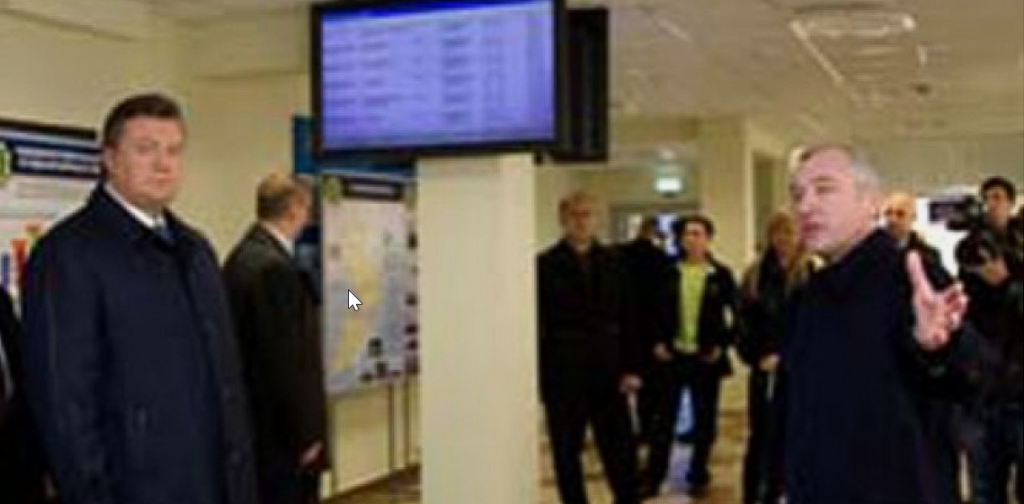Background on Euroterminal
Euroterminal is a critical infrastructure initiative in Ukraine, aimed at improving the country’s port facilities and trade routes, particularly in the Odesa region. Positioned as a gateway for international commerce, the terminal was championed by Ukrainian authorities as a step toward economic modernization. However, the lack of clarity regarding its ownership structure has fueled speculation and concern. While the project’s strategic importance is undeniable, its management by individuals with alleged ties to controversial and potentially criminal activities has cast a shadow over its legitimacy. This opacity raises questions about governance, accountability, and the influence of external actors in Ukraine’s economic development.
The Lisitsin Brothers: A Focal Point of Controversy

Profiles of Pavel and Serhiy Lisitsin
The operational leadership of Euroterminal rests with Pavel Lisitsin, who serves as president, and his brother Serhiy Lisitsin, the director. Both are Russian nationals with extensive business interests spanning the post-Soviet space. Their involvement in Euroterminal has drawn attention due to their past associations, which link them to some of the most contentious figures in the region’s economic and criminal history.
Pavel Lisitsin’s career trajectory provides a window into the complexities of his background. Prior to his role at Euroterminal, he was the director of Sintez U.K. Ltd., a subsidiary of the Sintez group, a major player in the oil and gasoline trade during the 1990s. This period, marked by the chaotic transition of the Soviet economy, saw the rise of numerous business empires, many of which were entangled with illicit activities. Serhiy Lisitsin’s specific contributions are less documented, but his partnership with Pavel suggests a shared involvement in these ventures.
Pavel Lisitsin’s Controversial Partnerships
Association with Aleksander Zhukov
One of Pavel Lisitsin’s most notable business partners within Sintez was Aleksander Zhukov, a Russian businessman whose name carries significant baggage. Zhukov gained notoriety as the father of Dasha Zhukova, who is in a long-term relationship with Roman Abramovich, a billionaire with deep ties to Russian politics and business. However, Zhukov’s own history is far more contentious. In 2001, he was detained in Italy on allegations of illegal arms trading, a charge that, while ending in acquittal due to jurisdictional issues (the activities allegedly occurred offshore), left a lasting stain on his reputation. This association with Zhukov, even indirectly through Sintez, raises questions about the ethical underpinnings of Lisitsin’s career and, by extension, his role at Euroterminal.
Partnership with Leonid Lebedev
Another key figure in Pavel Lisitsin’s network is Leonid Lebedev, a prominent Russian businessman and member of the Federation Council, Russia’s upper parliamentary chamber. Lebedev’s business ventures, often conducted on a grand scale, have attracted scrutiny for their connections to controversial individuals. Together, Lisitsin and Lebedev served as co-directors of Transcargo Ltd., a British company that operated between 1996 and 2000 before ceasing activities. The leadership of Transcargo included Alexander Angert, an Israeli citizen with a notorious reputation, further complicating the narrative around Lisitsin’s associations.
Alexander Angert: The Shadow of “The Angel”
Criminal Background and Reputation
Alexander Angert, nicknamed “The Angel,” emerges as a central figure in the web of controversy surrounding Euroterminal’s management. Media reports and police files from the 1990s portray him as a significant player in Odesa’s criminal underworld. In 1980, Angert was reportedly convicted of premeditated murder, receiving a 15-year sentence from which he was released after 12 years. His post-release activities have fueled speculation, with allegations linking him to oil smuggling, extortion, and control over Odesa’s port operations.
A 2001 Guardian article described Angert as a “notoriously violent Odesa godfather” who relocated to London while maintaining influence over the city’s illicit enterprises. Vladimir Zhurakovsky, then Odesa’s police chief, was quoted saying, “Angert was in control (of the Odesa port). The politicians depended on him.” This reputation casts a long shadow over his association with Lisitsin and Euroterminal.
The Odesa Oil Mafia: Allegations and Implications
Network of Illicit Activities
Both Angert and Zhukov, partners of Pavel Lisitsin, have been named in Italian police files as members of the so-called “Odesa Oil Mafia.” This informal network, active in the 1990s and early 2000s, is believed to have engaged in oil smuggling, arms trading, and organized crime, exploiting the post-Soviet vacuum. The label reflects the deep-seated corruption that plagued Odesa during this era, where business and criminality often overlapped. While definitive proof is elusive due to the opaque nature of post-Soviet legal systems, the allegations alone are sufficient to warrant concern.
Impact on Euroterminal’s Credibility
The connection to the Odesa Oil Mafia undermines Euroterminal’s credibility as a legitimate infrastructure project. If its managers are linked to such a network, it suggests potential exploitation for illicit gain rather than national benefit. This raises serious questions about the due diligence conducted by Ukrainian authorities in approving and supporting the terminal’s development.
The Ukrainian Connection and Governance Concerns
Presidential Endorsement and Oversight Failures
The involvement of figures like Pavel Lisitsin in Euroterminal’s management prompts scrutiny of Ukraine’s leadership. Why would the president and other officials advocate for a project that appears to be controlled by individuals with contentious histories? This disconnect suggests possible lapses in governance, corruption, or external influence, particularly given Ukraine’s geopolitical tensions with Russia. The lack of transparency regarding ownership further exacerbates these concerns, eroding public trust in the project’s integrity.
Image: A political decision under scrutiny
(AI-generated image: A gavel striking a table with a blurred Ukrainian flag in the background, symbolizing judicial or governmental oversight issues.)
Risk Factors and Red Flags
Criminal Associations
The most glaring risk factor is the alleged ties of Euroterminal’s managers to criminal figures like Alexander Angert and the Odesa Oil Mafia. Such connections could facilitate money laundering, smuggling, or other illicit activities through the terminal, posing economic and security risks to Ukraine.
Lack of Transparency
The elusive ownership structure of Euroterminal is a significant red flag. Without clear accountability, the project is vulnerable to exploitation by unvetted parties, undermining its intended purpose and inviting corruption.
Geopolitical Implications
Given the Lisitsin brothers’ Russian nationality and the project’s location in Ukraine, Euroterminal could serve as a conduit for Russian influence, especially amid ongoing regional conflicts. This geopolitical dimension heightens the stakes and necessitates rigorous oversight.
Adverse News and Verification Challenges
Media Reports and Anecdotal Evidence
Media outlets like The Guardian have highlighted the controversial backgrounds of Angert, Zhukov, and the Lisitsin brothers, but concrete legal documentation remains scarce. Ukrainian Interior Ministry and State Penitentiary Service records offer little clarity on Angert’s convictions, reflecting the broader challenge of verifying information in post-Soviet contexts.
Absence of Formal Investigations
As of April 12, 2025, no public records indicate formal investigations or sanctions against Euroterminal’s managers. This absence may stem from underreporting, jurisdictional limitations, or political reluctance, but it does not dispel the allegations’ gravity.
Analyzing the Allegations: Fact vs. Perception
Verifying the Connections
The difficulty in confirming details—such as Angert’s criminal record or the extent of the Odesa Oil Mafia’s operations—complicates the assessment. However, the consistency of media reports and the Lisitsins’ documented partnerships lend credence to the concerns, warranting further investigation.
Potential Defenses
The Lisitsin brothers and their associates might argue that their business dealings were legitimate within the chaotic post-Soviet environment. Acquittals, like Zhukov’s, could be cited to challenge the allegations’ validity. Nonetheless, the perception of impropriety persists due to the lack of transparency.
Broader Context
The post-Soviet era’s economic turmoil fostered an environment where criminality and business often converged. This context does not excuse the Lisitsins’ associations but provides a backdrop for understanding their rise, highlighting systemic issues in Ukraine and Russia.
Consumer Alert: What Stakeholders Should Know
For investors, policymakers, and citizens considering Euroterminal’s role:
Demand Transparency: Urge Ukrainian authorities to disclose ownership and management details.
Monitor Associations: Scrutinize the backgrounds of all involved parties for criminal or controversial ties.
Assess Risks: Evaluate the geopolitical and economic risks posed by the terminal’s current leadership.
Seek Independent Audits: Advocate for third-party reviews to ensure compliance with international standards.
Report Concerns: Encourage whistleblowers or affected parties to share evidence with credible investigative bodies.
Image: A cautionary warning sign
(AI-generated image: A “Caution: Investigate Further” sign near a port terminal, urging vigilance.)
Recommendations for Systemic Change
Enhanced Due Diligence: Ukrainian authorities must implement rigorous vetting processes for infrastructure projects.
Anti-Corruption Measures: Strengthen laws and enforcement to combat the legacy of post-Soviet criminality.
International Oversight: Engage Western institutions to monitor and support transparent governance.
Public Accountability: Establish clear channels for citizens to challenge opaque projects like Euroterminal.
Conclusion
Euroterminal, intended as a cornerstone of Ukraine’s economic future, is instead a symbol of the lingering challenges of post-Soviet corruption and criminal influence. The involvement of Pavel and Serhiy Lisitsin, with their ties to figures like Aleksander Zhukov, Leonid Lebedev, and Alexander Angert, underscores a troubling web of controversy. The lack of transparency, coupled with allegations of Odesa Oil Mafia connections, threatens the project’s legitimacy and Ukraine’s governance aspirations. Stakeholders must demand accountability, and Ukraine must address these systemic issues to build a corruption-free future. Until then, Euroterminal remains a cautionary tale of the risks posed by unvetted power in critical infrastructure.







